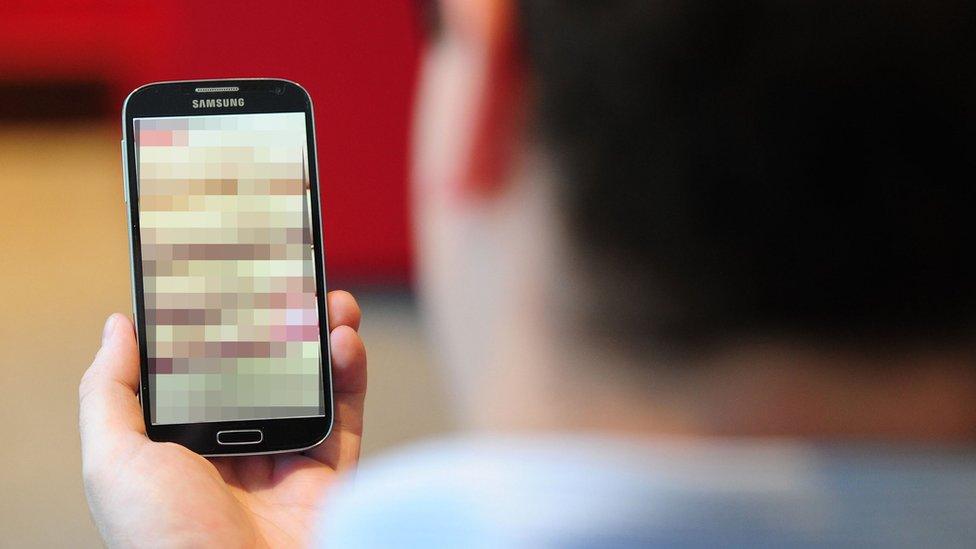Holyrood committee backs new 'revenge porn' law
- Published

Holyrood's justice committee has backed the general principles of a bill which seeking to criminalise so-called "revenge porn".
The Abusive Behaviour and Sexual Harm Bill, external would introduce jail terms of up to five years for publishing intimate images or video without consent.
MSPs called for "careful examination" of the details of this offence.
The bill includes other measures such as creating sexual harm prevention orders and directions for juries.
Other provisions include introducing rules so Scots committing child sexual offences in England and Wales can be prosecuted in Scotland, and allowing courts to directly protect victims of abuse and harassment even if a conviction is not made.
The section dealing with so-called "revenge porn" would create an offence if a person discloses or threatens to disclose a photo or film showing or appearing to show another person in an intimate situation, when the material has not previously been disclosed to the public.
The Scottish government said the new offence was considered necessary because advances in technology were being used to "threaten, harass and abuse other people" by "a small number".
'Disturbingly easy'
A memorandum submitted to the committee said there may be existing laws which could cover this kind of behaviour, but said creating a new offence would "make clear that it is unlawful to share private, intimate images of another person without their consent".
The committee backed the general principles of the bill, and in particular underlined support for the new offence.
The report read: "The behaviour the offence would address can be enormously hurtful and humiliating, and treating it as criminal is not disproportionate.
"The drafting of a new law provides an opportunity to set out the parameters of the offending behaviour with greater clarity and consistency.
"It also sends a clear message about the unacceptability of conduct that modern technology has rendered disturbingly easy to undertake, and may therefore have a deterrent effect."
- Published9 October 2015
